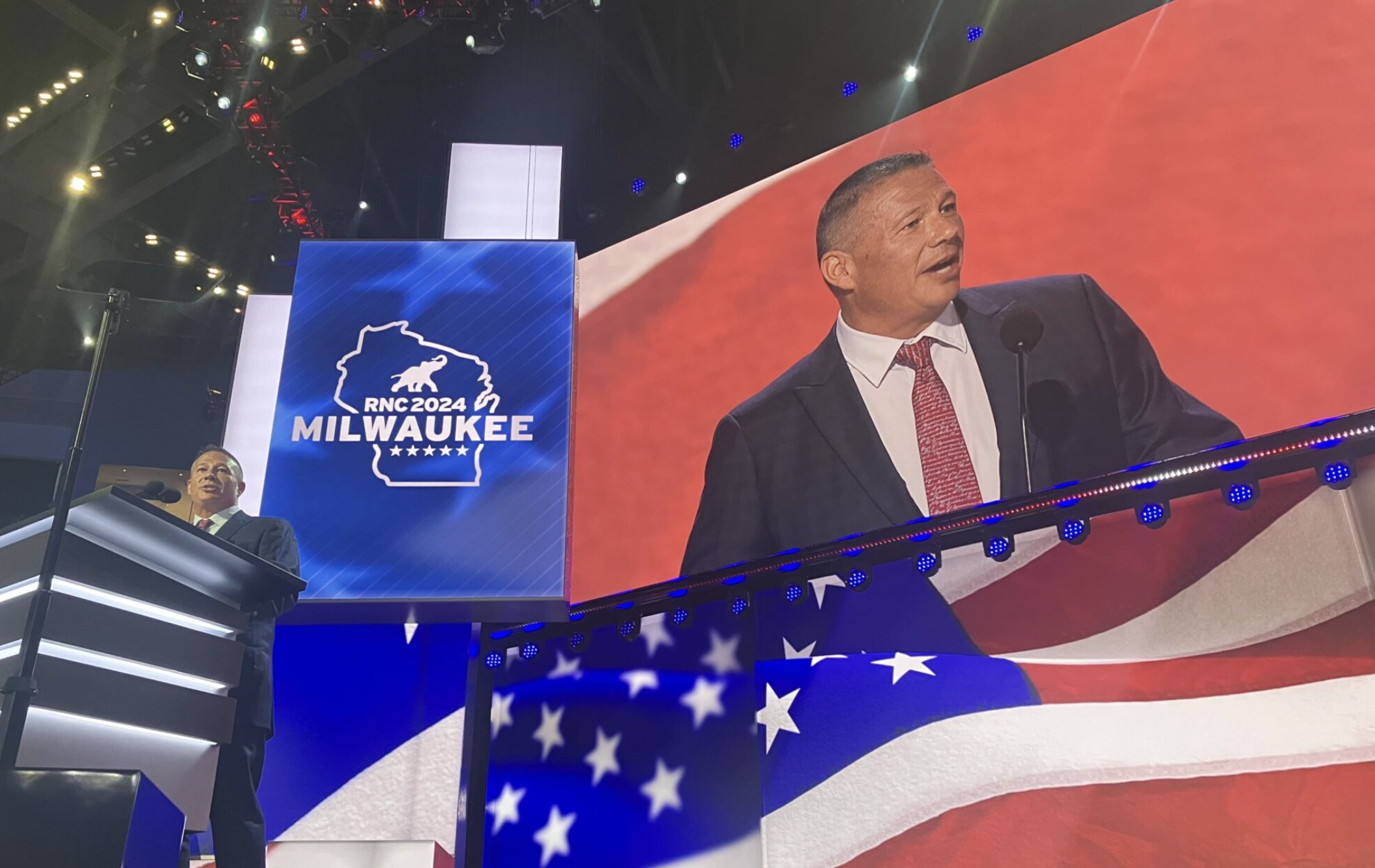
- Details
- By Levi Rickert
James A. Crawford, the former chairman of the Forest County Potawatomi Community in Wisconsin, was officially sworn in on Friday as the U.S. Department of Transportation’s (USDOT) Assistant Secretary for Tribal Affairs on Friday, July 11, 2025.
“I am going to deliver on President Trump’s and Secretary Duffy’s promises to work with the 574 federally recognized tribes across this great nation. I look forward to the opportunity to strengthen their sovereignty with the Department’s Tribal Transportation Self-Governance Program, and I’m proud to represent my tribe of the Forest County Potawatomi Community in Northern Wisconsin,” Assistant Secretary for Tribal Affairs James A. Crawford said.
Crawford brings extensive experience in tribal governance and affairs. He joined USDOT in May 2025 as Deputy Assistant Secretary for Tribal Affairs after holding several leadership roles within the Forest County Potawatomi tribal government. His previous positions include Vice-Chairman, tribal council member, secretary, and most recently, tribal chairman—a role he stepped down from to serve at USDOT.
As tribal chairman, Crawford played a key role in advancing tribal self-governance. On August 19, 2024, he signed the compact and funding agreement for Forest County Potawatomi to join the USDOT Tribal Self-Governance Program.
Crawford’s leadership has been widely recognized. He was named one of Madison365’s Most Influential Native American Leaders in 2023 and one of BizTimes Media’s Wisconsin 275 Most Influential Business Leaders in 2024. He also served as the founding chairman of the board of directors for the Potawatomi Business Development Corporation, now known as Potawatomi Ventures.
During the Biden administration, the role of U.S. Department of Transportation assistant secretary for tribal affairs was filled by Arlando Teller (Navajo).
More Stories Like This
Native News Weekly (August 25, 2024): D.C. BriefsNavajo Nation Mourns the Passing of Former Vice President Rex Lee Jim
Deb Haaland Earns Endorsement From Communications Workers of America Local 7076
University Soccer Standout Leads by Example
Two Native Americans Named to Democratic Congressional Campaign Committee's“Red to Blue” Program
Help us defend tribal sovereignty.
At Native News Online, our mission is rooted in telling the stories that strengthen sovereignty and uplift Indigenous voices — not just at year’s end, but every single day.
Because of your generosity last year, we were able to keep our reporters on the ground in tribal communities, at national gatherings and in the halls of Congress — covering the issues that matter most to Indian Country: sovereignty, culture, education, health and economic opportunity.
That support sustained us through a tough year in 2025. Now, as we look to the year ahead, we need your help right now to ensure warrior journalism remains strong — reporting that defends tribal sovereignty, amplifies Native truth, and holds power accountable.
 The stakes couldn't be higher. Your support keeps Native voices heard, Native stories told and Native sovereignty defended.
The stakes couldn't be higher. Your support keeps Native voices heard, Native stories told and Native sovereignty defended.
Stand with Warrior Journalism today.
Levi Rickert (Potawatomi), Editor & Publisher


